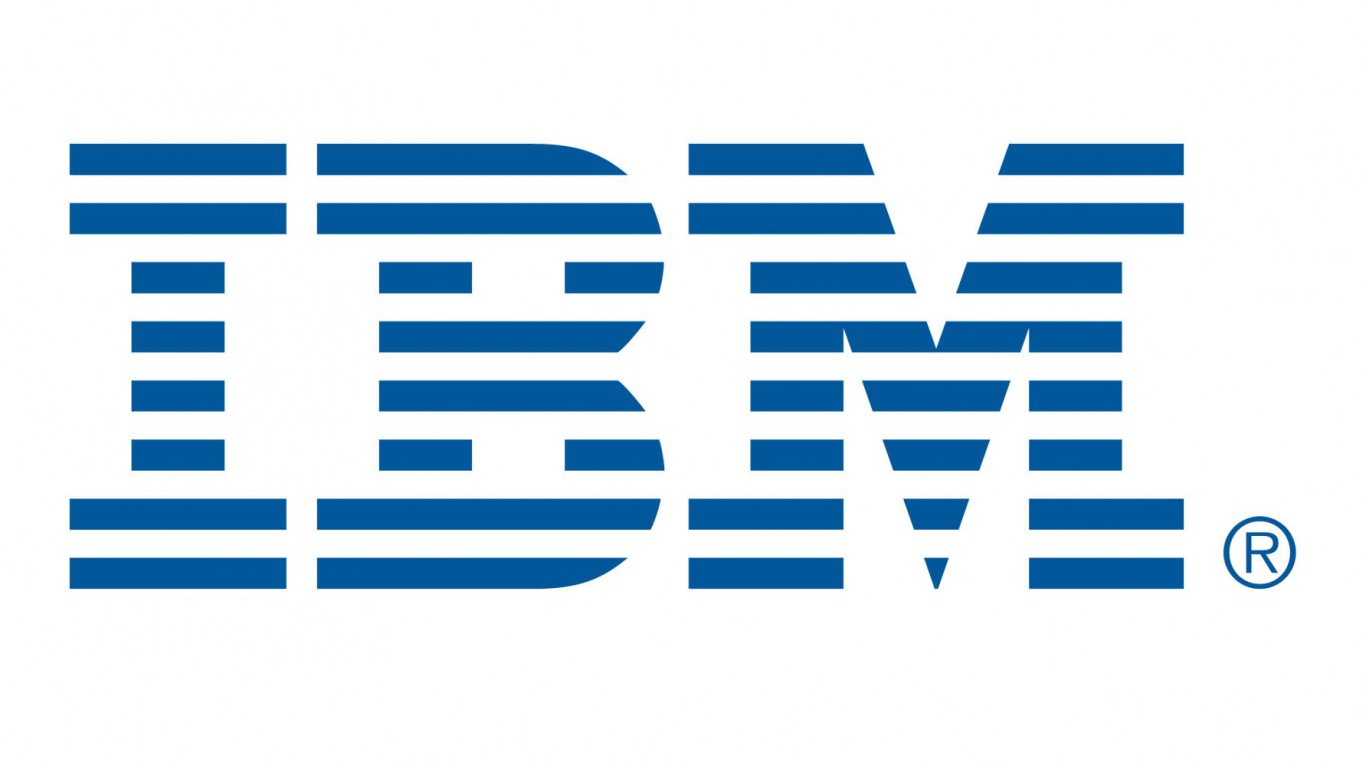
For once, International Business Machines Corp. (NYSE: IBM) caused a moment of joy among investors. After seemingly endless quarters of falling revenue, year over the previous year, IBM’s revenue moved higher, albeit by a tiny percentage, in the most recent period.
Revenue reached $17.7 billion in the first quarter, up from $17.6 billion the year before. However, net income fell from $1.175 billion to $955 million. IBM claimed the revenue improvement was due to a surge in cloud operations. However, its “Cloud & Cognitive Software” revenue rose less than 4%. IBM has not made a dent in the strength of cloud market leaders Amazon, Microsoft or Google.
Among the best ways to characterize IBM’s situation comes from market capitalization comparisons. Its stands at $129 billion. Amazon’s market cap is $1.6 billion and Microsoft’s is $1.8 billion.
IBM’s shares have seen a dead cat bounce this year, with the stock up by 15%. By comparison, shares in Microsoft have risen by 13%. However, for a longer period, which includes a year, two years and five years, IBM’s stock has been a terrible investment. Over five years, for example, IBM’s shares are down by 5%, while Microsoft’s are 368% higher. Given a forecast for lackluster results for the rest of 2021, there is no reason to believe IBM shares will stage an impressive recovery.
IBM’s board decided in April 2020 to replace long-time CEO Ginni Rometty with Arvind Krishna. Rometty, more than anyone else, has been the cause of IBM’s demise. As CNBC pointed out last year:
IBM’s stock dropped 24% under Rometty’s leadership, the only U.S. tech company currently valued at $100 billion or more to lose value in that period. Shares of the other 16 most valuable tech companies gained anywhere from 64% (Qualcomm) to 3,468% (Netflix).
Krishna has done nothing to improve IBM’s situation, and he has not articulated plans that give investors reasons to believe the future will be better.
IBM will continue to perform as it has under Rometty unless it has an entirely unexpected transformation. That won’t happen.
Thank you for reading! Have some feedback for us?
Contact the 24/7 Wall St. editorial team.



